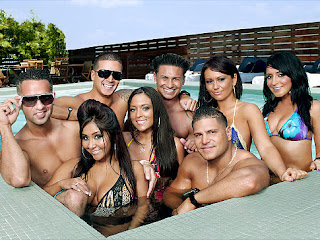
Reality TV has taken the global television culture by storm encouraging ordinary people with no training or television background to get involved in the production of shows and star in them. Referencing to Havens and Lotz's commercial mandate and economic conditions, the brilliant concept of reality TV meets the criteria for a successful show. The primary goal for a television show is to make profit and the best way to do that is to find an audience and gain a following. What better way to reach an audience is there than getting them involved with starring in the show and helping produce the show. Reality TV shows like MTV's Jersey Shore and FOX's American Idol incorporate the audience around the world and give them a huge role. The stars of Jersey Shore are ordinary people that are part of the entertainment cultural production in the US and therefore are willing to divulge personal information on national television as well as express themselves beyond traditional norms in order to capture the attention of producers and the viewing audience. The best parts about casting ordinary people to star in a show are the cost to cast the stars and the quality of performance. They are cheap and willing to work for low wages for fame and they are not expected to be quality actors because they don't have any training. This fits television's commercial mandate if the audience gravitates towards them. But since the actors are similar to the audience they are relatable. And since a lot of reality TV shows use conflict or alcohol to encourage conflict, people are interested.
Which brings me to my next point of interactivity. What better way to keep audience interested than to give the audience some sort of production control. Now reality shows like American Idol, have given the audience voting and responsive capabilities through telephone and online voting to live performances and through blogging. The interactivity gives the fans a sense of empowerment of the show of their choice. They invest the time to watch the show and now they have the ability to change the show to what they see fit by adding their own input. The script-less, non-big named relatable cast, and interactivity from the audience are the perfect ingredients to a successful show the meets the commercial mandate and follows the economic conditions. Networks and producers are formatting shows off one another based on contest, reality conflict, and talk shows because the trends are pointing too a strong success.
3 Questions for Magical Elves:
1. What’s the hardest part about producing a TV show?
2. Magical Elves seems to focus on producing reality tv shows so how do you pick an event that occurs in reality to base a show around?
3. How did you get into the production side of the Entertainment business?
No comments:
Post a Comment